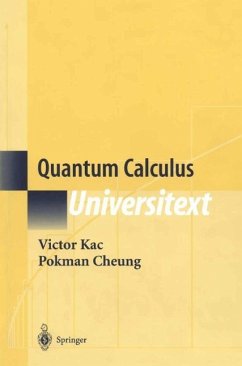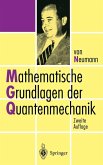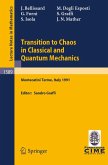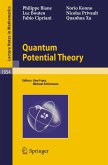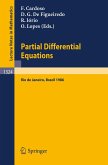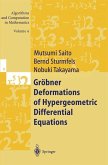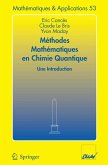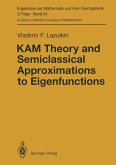Dieser Download kann aus rechtlichen Gründen nur mit Rechnungsadresse in A, B, BG, CY, CZ, D, DK, EW, E, FIN, F, GR, HR, H, IRL, I, LT, L, LR, M, NL, PL, P, R, S, SLO, SK ausgeliefert werden.
MATHEMATICAL REVIEWS
"The authors have written a very accessible book. They have deviated from the classical approach and notation in a way that should prove quite successful."
AMERICAN MATHEMATICAL MONTHLY
"Kac and Cheung's book may be welcomed as a succinct, well-organized, and well-motivated account, accessible to undergraduate students, of an important are of mathematics that has found numerous applications in the last twenty years. The authors have given a unified treatment of q-calculus and h-calculus by treating these two areas within the same framework. The prerequisites of the book are essentially a knowledge of elementary calculus and linear algebra, though an acquaintance with infinite products would be useful. It could easily be used as a text for a junior- or senior-level topics course if the instructor supplied background on infinite products. Since the authors have also given complete computational details, it is also possible for an undergraduate to study the book independently. I recommend this book as a concise introduction to a subject that is not only of lively current interest, but also has roots in the works of our great mathematical ancestors."
"During the course of quantum calculus along the lines of traditional calculus, many important results and notions of combinatorics, number theory and other fields of mathematics are introduced. ... many results from the 18-th and 19-th centuries are treated in detail ... . The book is based on lectures and seminars given by the first author at MIT; it is addressed mainly to undergraduate students." (European Mathematical Society Newsletter, March, 2004)
"Quantum calculus is essentially ordinary calculus without limits. The book ... is based on the lectures and seminars given by Professor Kac ... . proofs and calculations are succinct but eminently clear. ... This book is compact and covers a lot of material in its hundreds or sopages. On the whole, it is accessible to anyone with an undergraduate knowledge of calculus ... . the logically constructed exposition makes it an intellectually satisfying read. I recommend it warmly." (James Gazet, The Mathematical Gazette, Vol. 88 (512), 2004)
"Kac and Cheung's book may be welcomed as a succinct, well-organized, and well-motivated account, accessible to undergraduate students, of an important area of mathematics that has found numerous applications in the last twenty years. ... It could easily be used as a text for a junior- or senior-level topics course ... . I recommend this book as a concise introduction to a subject that is not only of lively current interest, but also has roots in the works of our great mathematical ancestors." (Ranjan Roy, American Mathematical Monthly, August/September, 2003)
"This is a book written to be useable as an undergraduate textbook ... . Its subject is what used to be known as the calculus of finite differences, in both additive and scaling (or multiplicative) forms. Its point of view on the subject is not classical but modern and 'quantum' ... . The authors have written a very accessible book. They have deviated from the classical approach and notation in a way that should prove quite successful." (P. D. F. Ion, Mathematical Reviews, Issue 2003 i)
"This little book deals with three main themes. First it gives a very clear and rather complete introduction to q-analogues of elementary calculus, which the authors call 'quantum-calculus'. ... The second theme is an application to number theory ... . Finally they show how the calculus of finite differences ... can be derived in an analogous manner. All things considered in the book can be recommended to undergraduate students as a good readable introduction to the fascinating world of q-analysis." (J. Cigler, Monatshefte für Mathematik, Vol. 138 (3), 2003)
"Simply put, quantum calculus is ordinary calculus without takinglimits. This undergraduate text develops two types of quantum calculi, the q-calculus and the h-calculus. As this book develops quantum calculus along the lines of traditional calculus, the reader discovers, with a remarkable inevitability, many important notions and results of classical mathematics. This book is based on lectures and seminars given by Professor Kac over the last few years at MIT." (L'Enseignemanet Mathematique, Vol. 48 (1-2), 2002)

